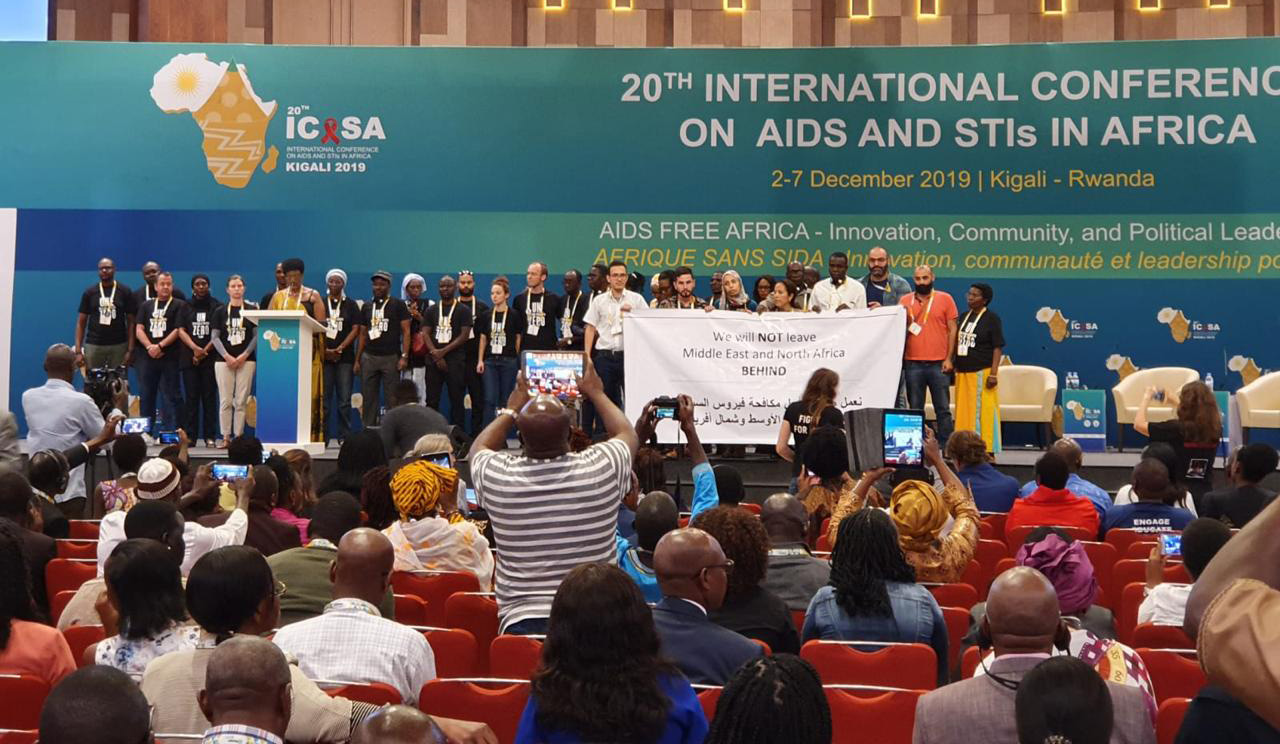At the 20th International Conference on AIDS and STIs in Africa (ICASA 2019), treatment advocates drew attention to the factors that prevent access to treatment being equal – and the role civil society has to play.

A sustainable response to HIV, Hepatitis C and TB will not be achieved unless everyone in need has access to affordable, optimal treatment – and in some areas, such as the Middle East and North Africa (MENA) region, we are seeing gains previously made being reversed.
The MENA region has one of the fastest growing HIV epidemics, combined with one of the lowest coverage rates. Only 54% of people living with HIV, who know their status, are accessing treatment.
ITPC-MENA participated in two well-attended sessions at ICASA, organized by Expertise France, to share the fundamental role civil society has in bringing down treatment barriers, and the tools available to them to do so.
Aissam Hajji, ITPC-MENA’s Advocacy Officer, presented at both events.
“It’s really important for civil society to understand the impact of monopolies on medicines and the important role health and rights advocates can play,” says Hajji. “Medicines no longer benefit from a status of ‘public goods’, instead they are mere products to profit from. With an absence of competition, these profits are unrestricted.”
It’s really important for civil society to understand the impact of monopolies on medicines and the important role health and rights advocates can play.
“This is why intellectual property is an important area for health activists to engage with. Experience has shown that action taken by civil society has a direct impact on stimulating competition. There are numerous ways civil society can prevent or challenge unmerited monopolies including opposing abusive patents, advocating for the routine use of TRIPS flexibilities, and pushing least developed countries, especially here in Africa, to use the transitional period granted by international agreements by refusing to grant patents until 2023.”
“Too often patents are granted that shouldn’t be, and this comes at a high cost both to health budgets and human life,” Hajji explains.

Aissam Hajji, ITPC-MENA’s Advocacy Officer, speaking at ICASA 2019.
Hajji listed other ways that civil society input has been invaluable in making medicines more affordable, which include:
- Documenting the prices of medicines and reviewing patent applications.
- Engaging in dialogue with industry, particularly through the Community Advisory Boards (CAB).
- Encouraging generic companies to register drugs in each country and make medicines available and affordable.
- Using national competition laws and competition councils when they exist. Tools, which as Hajji describes, “have not been used enough so far”.
Break the patent, not treatment!
Hajji was among the health advocates who took to the stage during ICASA 2019 to highlight that access is not equitable across the region. “Medicines must be affordable, available, and they must be quality,” says Hajji. “This is non-negotiable.”
Stockouts can be linked to monopolies.
Hajji described how everyone in the audience was aware of the fear presented by frequent drug stockouts, and how a lack of competition contributes to this. “It only takes for an order or delivery to be delayed to result in treatment being interrupted, and God knows treatment breaks are frequent across the African region. If we break monopolies there will be several suppliers, meaning countries can secure both a lower, fairer price and a continuous supply.”
RELATED:
Download ITPC-MENA’s publication Assessment of national intellectual property landscapes and their impact on access to medicines.
The study took place in Egypt, Morocco and Tunisia. It can be replicated, using the guide, in any other country and is the first step to challenging intellectual property barriers to accessing treatment. Available in Arabic, English and French.




